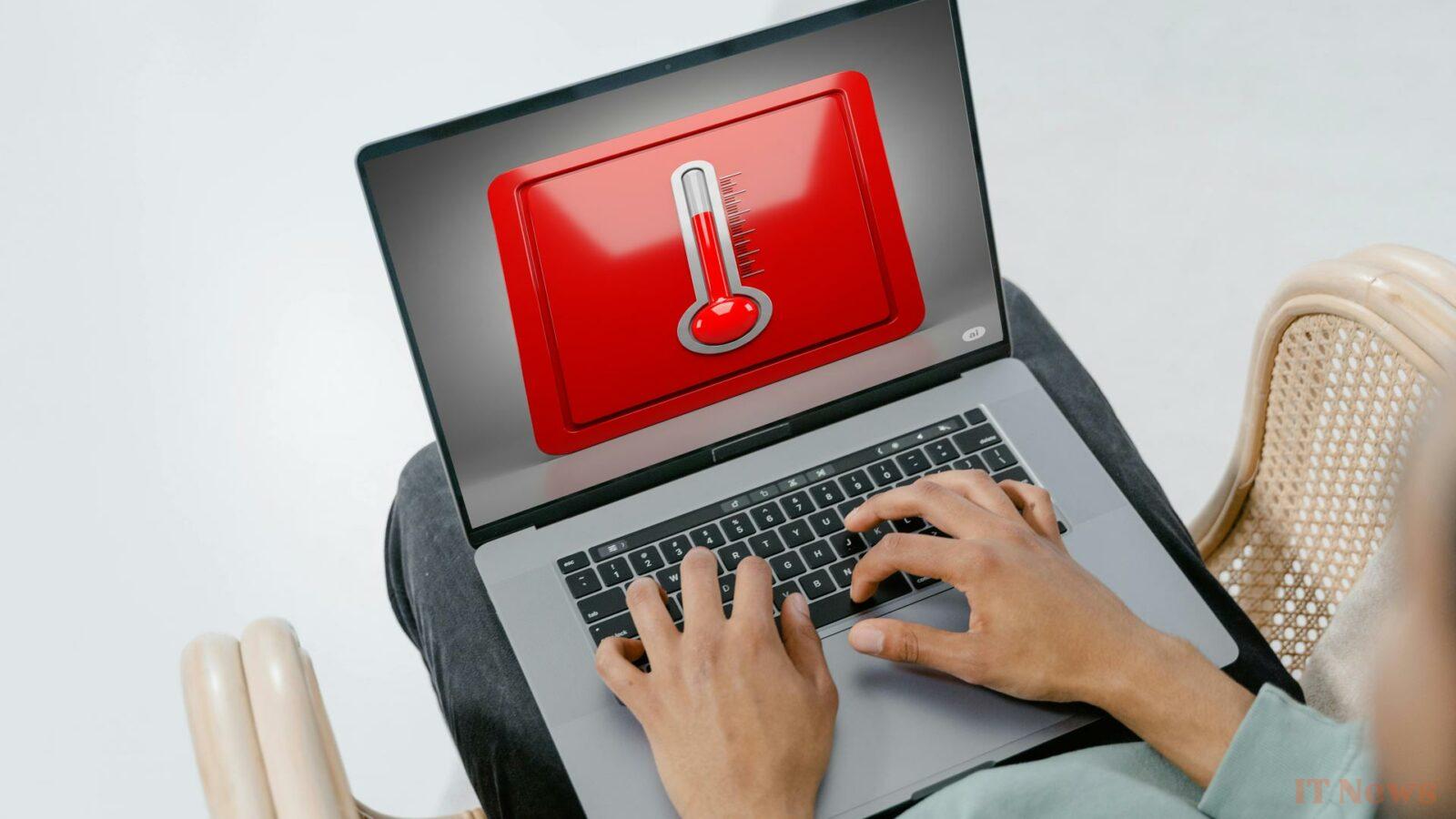That quiet hiss that, as the minutes go by, turns into a high-pitched whine, then the roar of an airplane turbine. It might be your laptop, and during that time, the plastic under your palms becomes unpleasantly hot, so much so that the idea of placing the computer on your lap is simply unthinkable. In the middle of a heatwave, this cry for help is the last line of defense before radio silence, the silly breakdown that could have been avoided.
Heat is the sworn enemy of our devices, whether smartphones or laptops. To function, the components give off heat and even have an ideal temperature range, defined by the manufacturer, to operate efficiently. The system accommodates this in most situations, but when the ambient air approaches or exceeds 35°C, the cooling mechanism breaks down. The heatwave doesn't create the problem; it brutally reveals it by transforming our little habits into direct threats to the survival of our computers. Ignoring these signals means running the risk of seeing its performance plummet, of suffering repeated crashes, and ultimately of causing irreversible damage to vital components, taking your precious data with it.
Your sofa, your computer's worst enemy
The most devastating mistake is also the most comfortable. Who hasn't finished a file or watched a series from their bed or sofa? It's the classic trap, because by placing your machine on a soft surface, you block its airways. The ventilation slots, crucial for drawing in fresh air, end up suffocated by the fabric. Unable to escape, the heat builds up and turns your cozy duvet into a veritable furnace. The rule to remember is that you should always work on a hard, flat surface: a desk, a table, or even a large book will do.
Also think of your computer like a car in the middle of summer; you wouldn't leave it in direct sunlight. The same principle applies here. Direct exposure, even behind a window, can cause the internal temperature to rise to critical levels in just a few minutes.
Dust and too many open tabs: the combination that burns everything out
The enemy can also be more discreet, more insidious: dust. Over the months, it builds up in your PC, and an invisible "mantle" of particles, hair, and debris forms on the fan blades and, worse, clogs the thin fins of the heat sink. This cocoon of dust acts as an insulator, making the cooling system less and less efficient. A blast of dry air in the vents, from time to time, is not a luxury but a necessity to make a computer last.
Finally, software overload is the other major culprit, and many machines run unnecessary applications. They can even launch as soon as the operating system starts up, without the user necessarily being aware. Cleaning up can help reduce the amount of programs you have to run, which will help your laptop run cooler and run faster.
In hot weather, you can also change a few habits by avoiding collecting tabs in the browser, launching a game while leaving dozens of applications running in the background... each open program is a small additional source of heat. Be minimalist, keep only the essentials and postpone the heaviest tasks to the cooler hours.
Also read: The heatwave will hit in a few days, up to 40°C this weekend, where will it be hottest in France?
The fridge, the bad idea that will finish off your computer
And if, despite everything, the black screen arrives and plunges the burning machine into sudden silence, one last temptation, the worst of all, awaits you. Faced with panic, the reflex may be to want to cool the device at all costs. And the crazy idea of putting it in the refrigerator may germinate. This is the action that will finish it off more surely than the heat itself. Never do it. Thermal shock can crack the circuits, but the real killer is condensation. When you take your PC out of the cold, tiny drops of water will form everywhere inside. Turning it back on at that moment is like pouring a glass of water on the motherboard. The only valid emergency procedure is patience: turn it off, unplug it, and let it slowly return to room temperature, in the shade.
Taking care of your computer in the face of heat is not rocket science. It's a simple matter of common sense and a few reflexes to adopt. By giving it space to breathe, keeping it clean, and moderating your digital ardor, you won't just be saving your summer evenings. In fact, you'll be preserving a valuable tool and extending its lifespan for years to come.



0 Comments